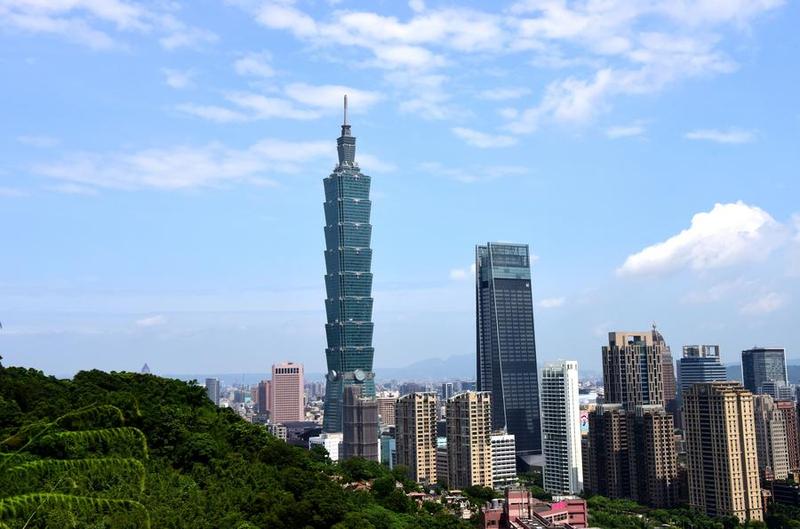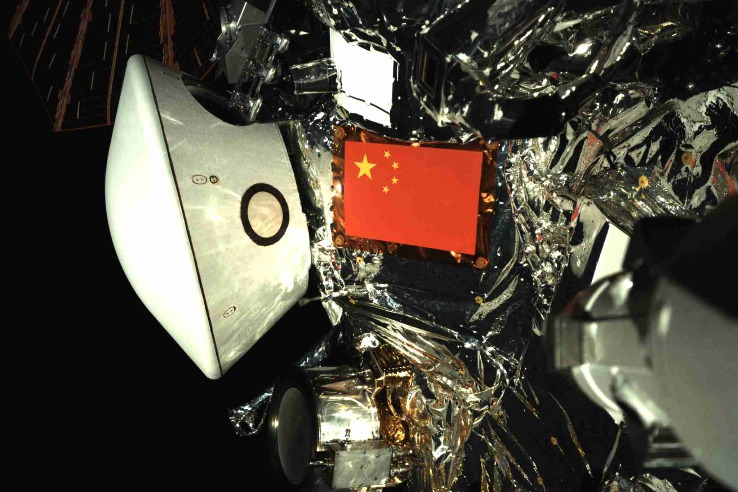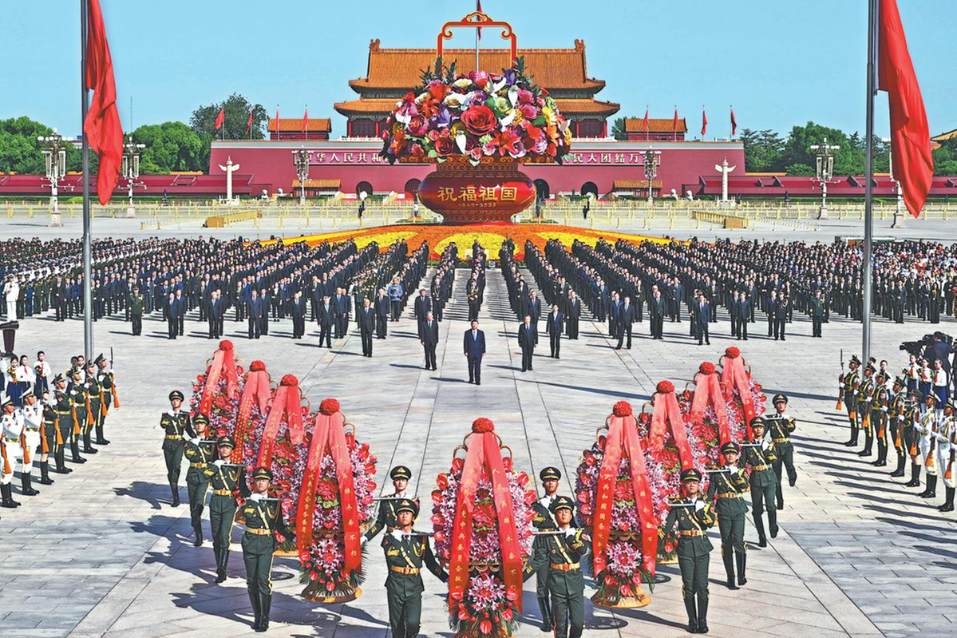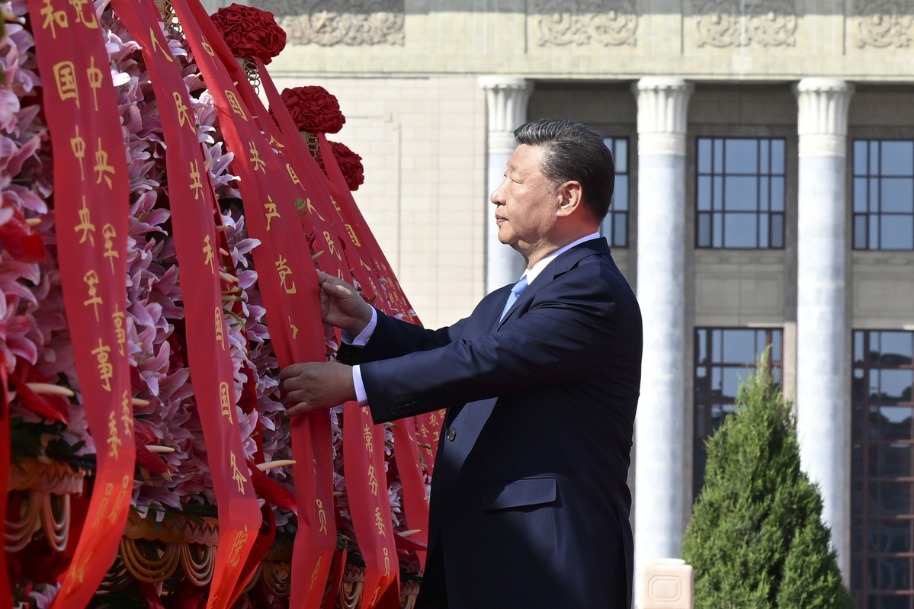DPP's separatist agenda is bound to failure


The Democratic Progressive Party authorities in Taiwan are once again resorting to historical revisionism. A senior official of the island has claimed that the "San Francisco Peace Treaty" replaced the Cairo Declaration and the Potsdam Proclamation, which called for Japan's unconditional surrender in World War II and the return of Taiwan to China. He also claimed that the treaty did not call for transfer of Taiwan to China.
This argument is not only legally baseless but also politically contrived — a rhetoric the DPP has long been recycling to push forward its "Taiwan independence "agenda. The argument twists international law, ignores binding wartime agreements, and amounts to political theater.
The DPP's habit of cloaking separatist ambitions in high-sounding language is nothing new. Two months ago, Taiwan leader Lai Ching-te announced a political campaign in the name of fostering "unity", delivering his so-called "ten talks" in a bid to sway public opinion. On the surface, his language sounds lofty — filled with words like "peace", "democracy", and "solidarity".But behind his carefully choreographed performance lies a much more troubling reality: a calculated effort to repackage separatist ambitions in the language of hope, while driving a wedge between the Chinese people on the two sides of the Taiwan Strait.
At the heart of Lai's campaign is a play of words, aimed at normalizing "Taiwan independence" through linguistic manipulation. Lai's repeated assertion that "the two sides of the Strait are not subordinate to each other" is nothing new; it is a recycled narrative designed to obscure Taiwan's historical and legal ties with the Chinese mainland.
The rhetoric is aimed at dividing the Chinese people across the Strait, fomenting hostility against the mainland, and creating a climate of fear and antagonism. It is not a slip of the tongue, but part of a strategic ploy of Lai and his DPP to repeat falsehoods in a bid to make it sound like fact, use language as a weapon to reshape public perceptions and weaken the shared identity of the Chinese people on the two sides of the Strait.
Lai's attempt to distort facts does not stop at wordplay. It extends into the realm of history. He has been denying the undeniable — that Taiwan has been a part of China since ancient times — by turning a blind eye to archaeological evidence and historical records that show the origin of the island residents is in southeastern China. He ignores centuries of administration by Chinese governments and downplays the fact that Taiwan was returned to China after Japan's defeat in World War II.
These are not inadvertent omissions but deliberate acts of distortion. Lai seeks to rupture cultural and historical memory, crafting a fictional past that serves the DPP's ideological goals of "cultural independence" and identity separation. Instead of "giving voice to Taiwan", Lai is trying to sever its connection with a shared national heritage.
Equally troubling is Lai's misuse of international law. By claiming that "Taiwan is not a part of China", he disregards the legal framework established by the 1943 Cairo Declaration, the 1945 Potsdam Proclamation, and the Japanese Instrument of Surrender signed on Sept 2, 1945 — all of which affirm Taiwan's return to China.
He also brushes aside UN General Assembly Resolution 2758, which recognizes the representatives of the government of the People's Republic of China as the only lawful representative of China to the UN. The global consensus on Taiwan is unambiguous. An overwhelming majority of countries adhere to the one-China principle that there is only one China, and Taiwan is an integral part of China. Yet Lai insists on bending international law to suit his political interests. His approach undermines the credibility of international institutions and the postwar global order.
What Lai is offering is not a road map for unity but a divisive political stunt — a rhetorical trap designed to manufacture consent for separatism in the guise of holding rational dialogue. His speeches are aimed at projecting ideological mobilization as policy discourse, while obscuring historical truths and legal realities. No matter how skillfully he crafts his message, lies repeated a thousand times remain lies. The historical fact of Taiwan being an integral part of China, and the emotional and historical ties of people across the Strait can't be overwritten by any script.
History cannot be rewritten, law cannot be manipulated, and a nation cannot be divided by using tricks of language. The tide of national reunification is a force too powerful to resist. And those who seek to divide the country for political purposes will ultimately be judged, not just by history, but by the people.
The author is a professor at the Institute of Taiwan Studies, Beijing Union University.
The views don't necessarily represent those of China Daily.
If you have a specific expertise, or would like to share your thought about our stories, then send us your writings at opinion@chinadaily.com.cn, and comment@chinadaily.com.cn.


































